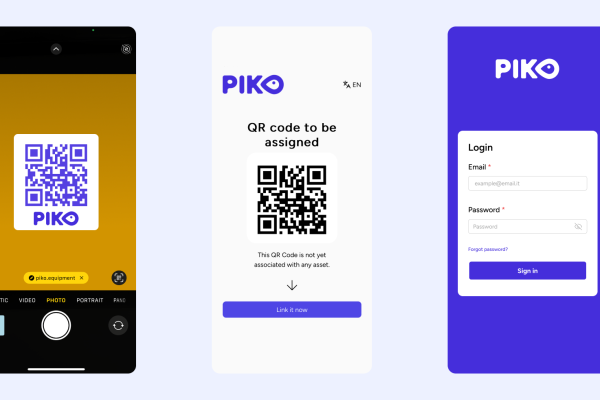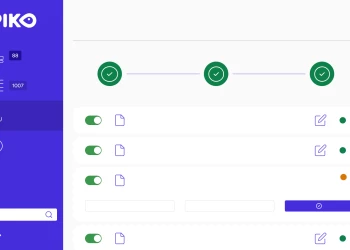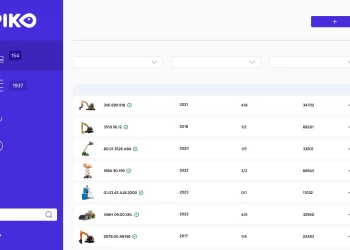How to use a document management system for heavy equipment rental?

Implementing a document management system
Implementing a document management system requires careful planning and execution. Begin by assessing your current workflows and identifying areas where a DMS can add value. This assessment helps tailor the system to your specific needs and ensures smooth integration with existing processes.
Once you’ve selected a system, focus on training your staff. Proper training ensures that employees know how to use the new software effectively. A well-trained team will maximize the benefits of the DMS and minimize disruptions during the transition.
What is the process of implementing a management system?
Implementing a management system starts with selecting the right software. Consider your business needs and the features that will provide the most value. After choosing the software, create a detailed implementation plan that includes timelines, responsibilities, and milestones.
Next, integrate the system into your existing workflows. This step may involve data migration, so ensure data is transferred accurately and securely. Finally, monitor the system’s performance and make necessary adjustments to optimize its effectiveness.
How to train staff on new document management software?
Training staff on new software is essential for successful implementation. Start with comprehensive training sessions that cover all aspects of the software. Use a combination of methods, such as workshops, tutorials, and hands-on practice, to accommodate different learning styles.
Regular follow-up sessions can reinforce learning and address any questions or issues. Providing ongoing support, such as access to help resources or a dedicated support team, will help employees feel confident using the new system. Well-trained staff are crucial for maximizing the benefits of document management software.
What challenges might you face during implementation?
During implementation, businesses may encounter several challenges. One common issue is resistance to change. Employees might hesitate to adopt new processes, especially if they are accustomed to existing workflows. Overcoming this resistance involves clearly communicating the benefits of the new system and how it will simplify their work.
Data migration can also be challenging. Ensuring that all existing documents are accurately transferred to the new system is vital. It’s important to have a detailed plan and backup options to prevent data loss. Additionally, providing adequate training and support can help staff adapt more quickly to the new system.
Document tracking and managing equipment rental agreements
Efficient document tracking is vital for managing equipment rental agreements. A document management system offers a centralized location for all agreements, making it easy to access and update them as needed. This centralization reduces the risk of losing important documents and ensures consistency across all agreements.
Tracking documents also helps prevent disputes. By maintaining accurate records of all transactions, businesses can quickly resolve any issues that arise. This transparency builds trust with clients and streamlines the rental process, enhancing overall customer satisfaction.
How to keep track of rental agreements efficiently?
Efficiently tracking rental agreements involves using a document management system to organize and store all contracts. By digitizing agreements, businesses can easily search for and retrieve any document when needed. This ensures that all parties have access to the most current information.
Another approach is to implement automated reminders for contract renewals or upcoming returns. These notifications help ensure that nothing is overlooked and that all agreements are managed proactively. Automation reduces manual effort and minimizes the risk of missed deadlines.
What Is the importance of document tracking in equipment rental?
Document tracking is essential in the equipment rental industry for maintaining transparency and avoiding disputes. By keeping detailed records of all transactions, businesses can promptly address any questions or concerns that arise. This transparency is crucial for building trust with clients and maintaining a positive reputation.
Additionally, efficient document tracking supports better compliance. By ensuring that all necessary documents are current and accessible, companies can more easily meet industry regulations. This compliance protects businesses from potential legal issues and helps maintain operational integrity.
How can you automate document management processes?
Automating document management processes involves using a DMS to handle routine tasks. For example, the system can automatically file documents, send notifications, and update records. This automation reduces the need for manual input, saving time and minimizing errors.
Implementing workflow automation is another effective strategy. By mapping out processes and setting up automated workflows, businesses can streamline operations and improve efficiency. Automation not only boosts productivity but also allows staff to focus on more strategic tasks, enhancing overall performance.
Real-time inventory management in heavy equipment rental
Real-time inventory management transforms heavy equipment rental. With real-time tracking, businesses can immediately see the status and location of all equipment. This visibility helps optimize scheduling, reduce downtime, and improve equipment utilization.
Integrating real-time tracking with mobile app support further enhances fleet management. Employees can access inventory information from anywhere, enabling them to make informed decisions quickly. This integration supports faster response times and more efficient operations, benefiting both the rental company and its clients.
How does real-time tracking benefit rental operations?
Real-time tracking benefits rental operations by providing current information on equipment status. This visibility helps businesses manage their fleets more effectively, ensuring that equipment is available when needed and reducing downtime. By optimizing equipment utilization, companies can increase profitability and enhance customer satisfaction.
Additionally, real-time tracking supports better decision-making. With accurate, up-to-date data, managers can make informed choices about scheduling, maintenance, and resource allocation. This responsiveness improves overall operational efficiency and competitiveness in the rental market.
What role does mobile app integration play in inventory management?
Mobile app integration is crucial for inventory management, offering flexibility and convenience. With mobile access to inventory data, employees can check equipment status, update records, and manage documents from anywhere. This capability is especially valuable for field operations, where quick access to information is essential.
Furthermore, mobile app integration facilitates real-time communication. Employees can receive instant notifications about equipment status changes or upcoming rentals, ensuring everyone stays informed. This connectivity enhances collaboration and ensures that the right equipment is always available when needed, improving both efficiency and customer service.
Get started today! Book a free demo to see how PIKO can help you manage your fleet structure and assets. With features like bulk document uploads, QR codes for on-site access, and flexible access levels, you’ll have full control over your machinery’s documentation. Plus, our experts can assist with easy integration into your company’s systems.





